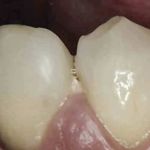- 1-understanding-bleeding-gums-during-pregnancy
- 2-hormonal-changes-impact-on-gum-health
- 3-pregnancy-gingivitis-as-a-primary-cause
- 4-poor-oral-hygiene-and-other-contributing-factors
- 5-nutritional-deficiencies-and-bleeding-gums
- 6-preventive-measures-and-treatment-options
1. Understanding Bleeding Gums During Pregnancy
Bleeding gums during pregnancy is a common concern that many expectant mothers face. This symptom often indicates underlying changes in gum tissue sensitivity and health. While some bleeding during brushing or flossing may seem minor, it can sometimes signal more serious conditions requiring attention.
Recognizing the causes of bleeding gums during pregnancy is crucial for maintaining both maternal and fetal health. Since oral health is closely linked to overall wellness, untreated gum issues can increase risks such as preterm birth or low birth weight.
Expecting mothers should be aware that bleeding gums are not just a cosmetic problem but a sign of how pregnancy affects the body’s systems, particularly the gums.
2. Hormonal Changes Impact on Gum Health During Pregnancy
One of the main causes of bleeding gums during pregnancy is the significant hormonal fluctuations, especially increases in progesterone and estrogen. These hormones alter the body’s response to plaque, causing the gums to become more inflamed and sensitive.
Pregnancy hormones increase blood flow to the gum tissues, making them more prone to swelling and bleeding even with gentle brushing. This heightened sensitivity can exacerbate irritation from plaque and bacteria, leading to what is often called “pregnancy gingivitis.”
Understanding this hormonal influence helps explain why gums can bleed more easily during pregnancy and underscores the need for gentle yet effective oral care.
3. Pregnancy Gingivitis as a Primary Cause of Bleeding Gums
Pregnancy gingivitis is a specific form of gum inflammation that occurs in up to 70% of pregnant women. It is characterized by red, swollen gums that bleed during brushing or flossing. The condition typically develops in the second trimester and can worsen if not managed properly.
This gingivitis results from the body's amplified inflammatory response to dental plaque influenced by pregnancy hormones. Although it generally resolves after childbirth, severe cases can progress to periodontitis, risking tooth loss and other health complications.
Early detection and treatment of pregnancy gingivitis are essential to control symptoms and prevent progression.
4. Poor Oral Hygiene and Other Contributing Factors
While hormonal changes play a major role, poor oral hygiene significantly contributes to bleeding gums during pregnancy. Inadequate brushing and flossing allow plaque buildup, worsening gum inflammation and bleeding.
Other factors include increased acidity in the mouth due to morning sickness or dietary changes, which can erode gum tissues. Stress, smoking, and pre-existing dental conditions also elevate the risk.
Maintaining a consistent oral hygiene routine adapted to pregnancy changes is crucial in minimizing these risks and protecting gum health.
5. Nutritional Deficiencies and Bleeding Gums
Another important cause of bleeding gums during pregnancy is nutritional deficiencies, particularly in vitamin C and vitamin K. These vitamins are vital for collagen production and blood clotting, essential processes in gum tissue maintenance and repair.
Pregnant women may experience deficiencies due to dietary restrictions, morning sickness, or increased nutritional needs. Low levels of vitamin C can lead to scurvy-like symptoms, including bleeding gums, while vitamin K deficiency affects clotting ability.
Ensuring a balanced diet rich in these nutrients or taking prenatal vitamins as recommended by healthcare providers supports healthier gums and reduces bleeding risks.
6. Preventive Measures and Treatment Options for Bleeding Gums
Preventing and managing bleeding gums during pregnancy involves a combination of good oral hygiene, regular dental visits, and proper nutrition. Brushing twice daily with a soft-bristled toothbrush, flossing carefully, and using antiseptic mouthwash can reduce plaque and inflammation.
Routine dental cleanings and checkups are safe during pregnancy and help detect issues early. Dentists may provide specialized advice or treatments tailored to pregnant women, such as gentle scaling or safe antimicrobial rinses.
In cases of severe gingivitis or periodontitis, more advanced care may be necessary, always coordinated with your obstetrician.
For expectant mothers seeking trusted oral care products or professional services, Dentistry Toothtruth offers expert recommendations to support your dental health throughout pregnancy.







 North Columbus Dental Group5.0 (2 review)
North Columbus Dental Group5.0 (2 review) Monarch Dental & Orthodontics4.0 (557 review)
Monarch Dental & Orthodontics4.0 (557 review) Bob and Peg's Dental5.0 (4 review)
Bob and Peg's Dental5.0 (4 review) Corner Dentistry4.0 (42 review)
Corner Dentistry4.0 (42 review) Midlothian Family Dentistry4.0 (649 review)
Midlothian Family Dentistry4.0 (649 review) River Run Dental4.0 (356 review)
River Run Dental4.0 (356 review) The Importance of Oral Health Education During Pregnancy for a Healthy Pregnancy
The Importance of Oral Health Education During Pregnancy for a Healthy Pregnancy Best Tips for Brushing Your Teeth Properly for Healthy Gums: Essential Techniques for Oral Health
Best Tips for Brushing Your Teeth Properly for Healthy Gums: Essential Techniques for Oral Health Why Skipping Dental Checkups Can Lead to Bigger Oral Health Problems
Why Skipping Dental Checkups Can Lead to Bigger Oral Health Problems Advantages of Porcelain Dental Restorations
Advantages of Porcelain Dental Restorations How Can Diabetes Cause Tooth and Gum Problems? Preventing and Managing Oral Health Issues
How Can Diabetes Cause Tooth and Gum Problems? Preventing and Managing Oral Health Issues Healthy Habits for Promoting Good Oral Health and Hygiene: Tips for a Healthy Smile
Healthy Habits for Promoting Good Oral Health and Hygiene: Tips for a Healthy Smile